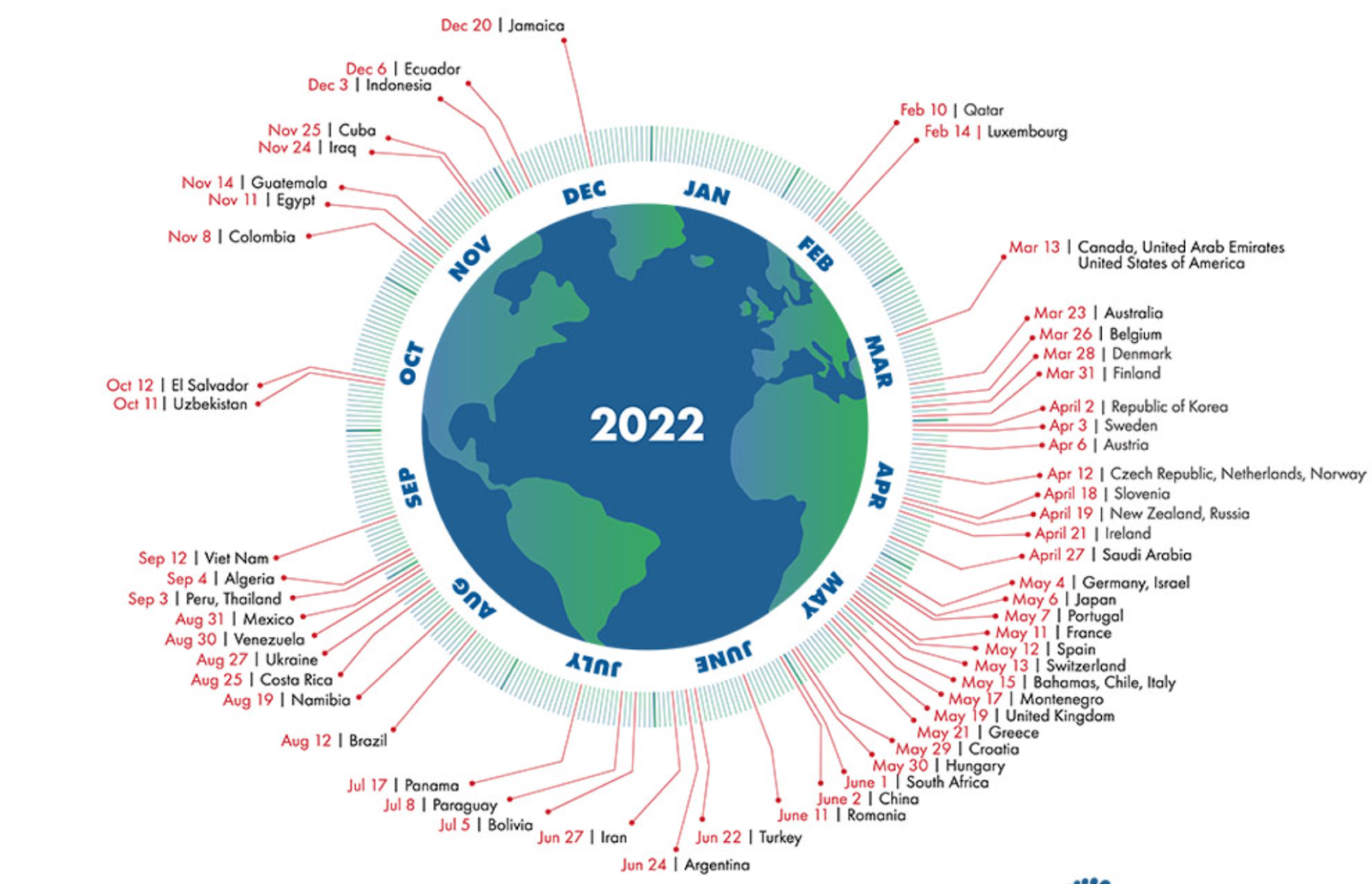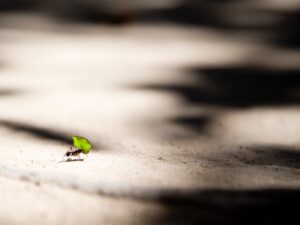Overshoot is driving humanity towards collapse on a planetary scale
In 1911, the US government placed 40 reindeer on the Pribilof Islands in Alaska to provide the native residents with a sustained source of fresh meat. The herd flourished on St. Paul Island, and by 1938 it numbered 2,000 members. Over the preceding twelve years, the herd suffered catastrophic losses. By 1950, it comprised a miserly eight members. The success and collapse of the herd illustrates what can happen when a population triggers ecological overshoot.
The initial conditions on St. Paul Island allowed the reindeer to flourish. There island had no predators, and lichen, a form of moss, provided the reindeer with a plentiful supply of food for the winter months. As a result, the reindeer herd increased in size. The lichen could keep up with demand when the herd numbered a few hundred. But more reindeer meant more demand placed on the lichen. The land area of St. Paul Island is 26,500 acres which means that “at the peak of the population in 1938, there were only 13 acres of land for each deer…on this basis, the reindeer population was at least three times the carrying capacity of the range.”
In other words, St. Paul Island couldn’t support a population of 2,000 reindeer. Overpopulation led to a state of overshoot. Overshoot is where the demands of a species for the ecological services they need to sustain themselves, are in excess of the carrying capacity of the area to provide for their needs. What this meant is that the lichen couldn’t regenerate quickly enough to support an ever-growing population. The peak reindeer population coincided with the disappearance of the lichen. Inevitably, without a food source for the winter months, starvation and disease devastated the herd over the next twelve years.
So what does a reindeer herd on an Alaskan island have to do with humans? Plenty, as it happens. Pre-industrial societies existed within the confines of the energy balance governing the Earth. But advancements in science and technology provided humanity with the ability to harness the energy stored in fossil fuels — giving us access to possibly five hundred million years’ worth of energy stored from prior photosynthesis.
Our reliance on fossil fuels to sustain civilisation means that “85 percent of commercial energy, 65 of fibres, and most plastics are now produced from fossil fuels.” Since the industrial revolution, and in particular, since the end of the second world war, our increasing ability to harness energy has seen an explosion of economic activity that has coincided with an explosion in the human population. The human population went from two billion people in 1920, to eight billion in 2022.
This growth in the human population can’t be sustained indefinitely because of the enormous demands such a massive population has on ecosystems. Between 1960 and 2000, “food production increased by roughly two-and-a-half times, water use doubled, wood harvests for pulp and paper production tripled, installed hydropower capacity doubled, and timber production increased by more than half.” Inevitably, this feverish increase in ecosystem demands can only be met by exploiting the Earth’s resources at increasing rates. Rates that “surpass the capacity of its systems to absorb wastes and neutralize the adverse effects on the environment.”
The result is that we require 1.7 Earths to meet the demands of humanity each year. This state of affairs has triggered ecological overshoot. Overshoot is possible — for now — because “we can cut trees faster than they mature, harvest more fish than the oceans can replenish, or emit more carbon into the atmosphere than the forests and oceans can absorb.” The result is that the natural world is losing its ability to provide all of the stuff we need to sustain ourselves, while wastes are accumulating faster than they can be absorbed or recycled by the natural world.
Earth Overshoot Day is a symbol of how unsustainable the current state of affairs is. Overshoot day marks the date when “humanity’s demand for ecological resources and services in a given year exceeds what Earth can regenerate in that year.” In 2022, Earth Overshoot day landed on 28 July. What the image at the beginning of the article reveals is that humanity is out of balance. Some countries consume far too much, and others don’t consume enough.
What it doesn’t reveal, though, is that consumption is highly unequal and correlates with levels of inequality. Since 1990, the richest 10 percent of the world’s population has been responsible for 52 percent of the cumulative carbon emissions, consuming 20 times as much energy as the poorest 10 percent. But energy consumption varies widely between and within countries. The poorest 20 percent of citizens in the UK consume over five times more energy per person than the poorest 84 percent of people in India.
On top of this, the image only shows countries that have consumption levels that are creating overshoot. Many developing nations don’t appear on the visual at all. This isn’t because they live in sustainable societies where each person’s needs are met in harmony with nature, but rather the opposite; lots of people’s basic needs are not being met.
Given capitalism is the dominant global economic system, how is it going about solving overshoot? Well, it’s not; it simply ignores the environmental reality. In fact, capitalism demands never-ending economic growth, its very survival depends on it. Growth has become wrapped up in our conception of social development. The idea is that more wealth creates a rising tide that raises all boats. Increasing incomes lead to more people having more disposable income, which allows them to increase their living standards.
From the perspective of social development, more people with more disposable income is a good thing. But from the perspective of the environment, more people joining the consumer class means ecological overshoot increases. Social development, as we conceive of it, is incompatible with creating a sustainable society because development is the very thing that leads to unsustainable outcomes. While it should be a cause for celebration that more people are escaping poverty, underlying this celebration is a symbol of our increasing dependence on the environment for inputs of energy and resources into the economy.
We are in effect, “running an ecological Ponzi scheme in which society robs nature and future generations to pay for boosting incomes in the short term.” To have any hope of reducing overshoot we must embrace a radically different economic model, one that respects environmental limits and the laws governing energy. But given the global economy revolves around capitalism, the redesign of society around a different economic system seems unlikely. It appears that widespread recognition of the need to do so may only come when we’re faced with an emergency not dissimilar the fate suffered by the reindeer on St. Paul Island.




Great article! Thanks for tying capitalism into the story, because it simply doesn’t have the tools and incentives to address the crisis. Capitalism has crowned EVs and solar panels as saviors of the planet, but their materials and fossil costs are prohibitive and they will not substantially alter our trajectory. We need to use less, and we need an energy transition.
I wrote an article with a similar theme but a different focus here https://bloxblog.substack.com/p/exhausted-the-real-fossil-future